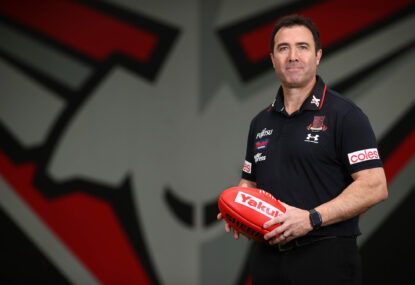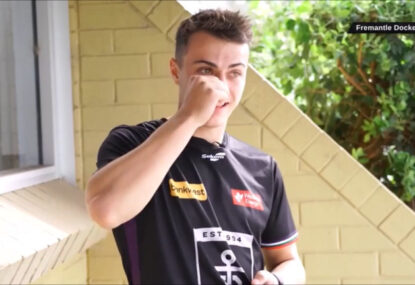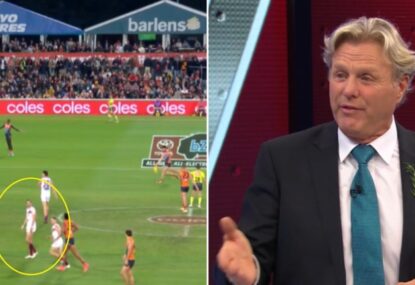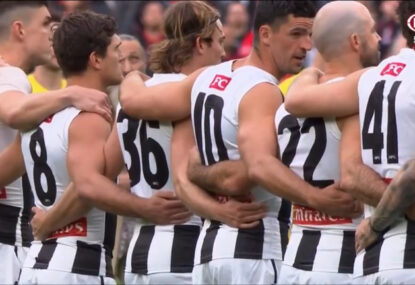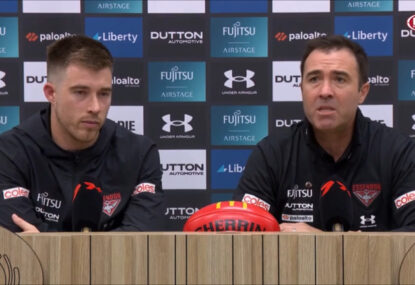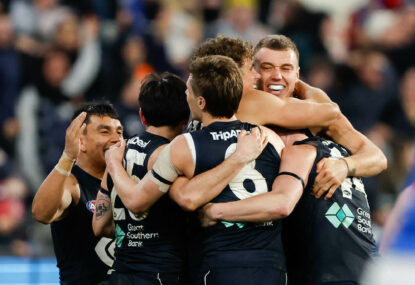The Hawthorn Football Club may have won more premierships since the war than any other VFL/AFL club, but when the legendary John ‘Kanga’ Kennedy Snr debuted for the club in 1950 they were yet to win their first flag.
In fact in the great man’s first season as a player under Bob McCaskill the Hawks lost all 18 games, with the coach being replaced after a four-win season the following year by his assistant, Jack Hale, who himself had been shown the door after two poor seasons coaching South Melbourne.
Hale was no super-coach, but he mentored Kennedy through his entire playing career and had a great influence on his early coaching tenure, acknowledged as having taken the team from rock bottom to the finals, and once the 30-year-old Kennedy was ready to transition from player to coach it was only two seasons before Hawthorn won their first flag.
Kennedy was a teacher by profession in those days, so when his job took him to Stawell he was forced to quit as Hawthorn coach, with the team subsequently plummeting back to the bottom within two seasons, but by 1967 he was back to rebuild the team into a premiership force with his captain and eventual successor, David Parkin.
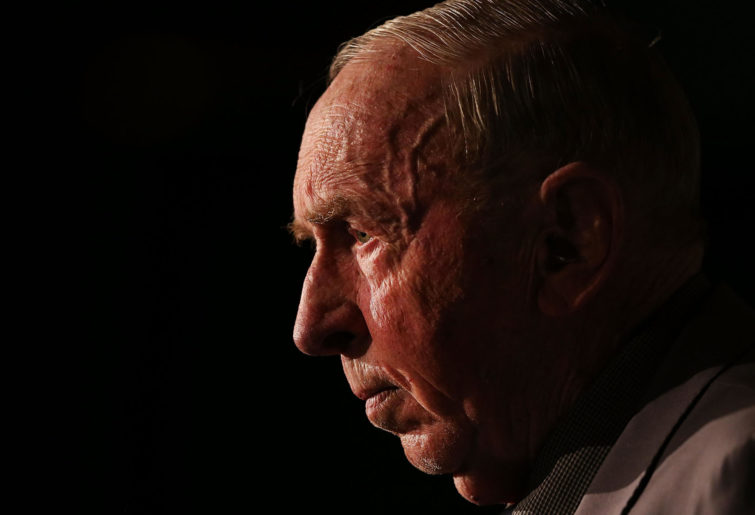
John Kennedy Snr. (Photo by Michael Dodge/Getty Images)
By the end of the Kennedy era at Hawthorn they had three flags and a team that would go on to win another under Parkin, yet the Hawks boffins, perhaps still dizzy after 26 coaching changes in 67 years, looked to install St Kilda premiership coach Allan ‘Yabby’ Jeans, so Parkin went to Carlton, where he won two flags in his first two years as coach.
Jeans and Parkin have their own coaching trees, with Yabby a legend in his own right and Parkin becoming a major branch of the Kennedy legacy, yet they deserve articles of their own for the way they changed the game and mentored dozens of subsequent coaches.
Kennedy’s disciples also included Alan Joyce, who played in Kanga’s first flag in 1961 and was football director at Hawthorn when Allan Jeans suffered a brain haemorrhage in 1987, leading to him taking over the champion team and winning the grand final in 1988 only for Jeans to demand his job back and take the Hawks to victory in 1989.
In 1991 Joyce won his job back in what was now the 30th Hawthorn coaching change in 78 years, promptly winning the flag to go two from two, then was sacked two years later for club favourite son Peter Knights, who had coached only the Brisbane Bears for much of their first three years.
Once again the coaching carousel at Hawthorn went into a spin, yet they failed to land on two of their most successful former players who had made the transition into coaching, namely Leigh ‘Lethal’ Matthews and Rodney ‘Rocket’ Eade, one of whom was already a flag-winning coach with Collingwood, while the other had won a couple of reserves flags.
While Eade had won flags with all three Hawthorn flag-winning coaches between 1976 and 1986, Matthews was a Kennedy acolyte through and through, winning an unmatched eight Peter Crimmins Perpetual Memorial trophies.
Lethal’s coaching tree is another branch that crosses several notable coaches who influenced him, yet his roots come from the Kennedy era, having played with Parkin before being coached by him and captaining the side under Jeans, leading to a long coaching career during which coached several subsequent coaches.
On the other hand, Rocket was only a skinny 18-year-old in his ninth game in 1976 when Kennedy bowed out after the Hawks’ third flag, becoming a mainstay under Parkin before playing more than half his career 259 games under Jeans. Then after two more flags he joined Knights at Carrara to squeeze out a final 30 games with the young Bears list.
Eade’s coaching offshoots may well yet be too soon to evaluate after he coached three separate teams, yet he did coach and mentor Paul Roos as a player and then assistant coach, who then took over in the middle of 2002 and has since gone on to create his own branches of current coaches, yet neither is really of the Kennedy coaching tree, having both spent time under Parkin and Ron Barassi, Eade having played or coached under a who’s who of coaches.
The peculiar thing about AFL coaching trees in the modern era is that they all come back to four men: John Kennedy, Allan Jeans, Ron Barassi and Tommy Hafey. Every flag since the Saints won their one and only premiership in 1966 has been won by one of those four coaches or a coach who descends from those four lines.
However, there is one premiership coach whose place in this is muddied. Denis Pagan played only 27 games under the great Ron Barassi before being shunted off to South Melbourne, which is hardly a mentorship.
Famously Pagan was the perennial reserves coach at North Melbourne from 1982 to 1991, winning five teserves premierships, working under head coaches Barry Cable, Kennedy and Wayne Schimmelbusch before getting the job as North’s head coach after spending 1992 coaching Essendon’s reserves under Kevin Sheedy. He wasn’t exactly nurturing a protege in any of those cases, yet he was influenced directly by two of the main four and indirectly by Sheedy, who came up under Hafey.
However, no matter how tenuous, every premiership coach in the past 55 years has either been one of the four legendary coaches, been coached by them, coached under them and/or were coached by or under a coach who was coached by or coached under them.
Matthews has coached Chris Scott and Mark Williams, Pagan coached John Longmire and Adam Simpson, Eade coached and mentored Roos under Barassi and it all links back to one bloke who joined the Hawks so long ago that they’d never even won a flag.
This is just a snapshot of John Kennedy Senior’s influence over his storied career, the proteges he groomed, the winning culture he instilled at Hawthorn and how those who came after him have continued his legacy. And he wasn’t even the best coach of his era, with Hafey, Barassi and Jeans all finishing with more glory, yet his legacy of success at Hawthorn and the immense achievements of those he led put his coaching tree in the argument for the best of all time.






























































































